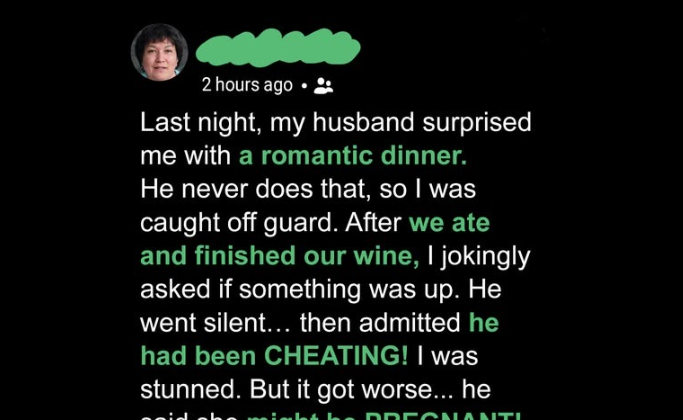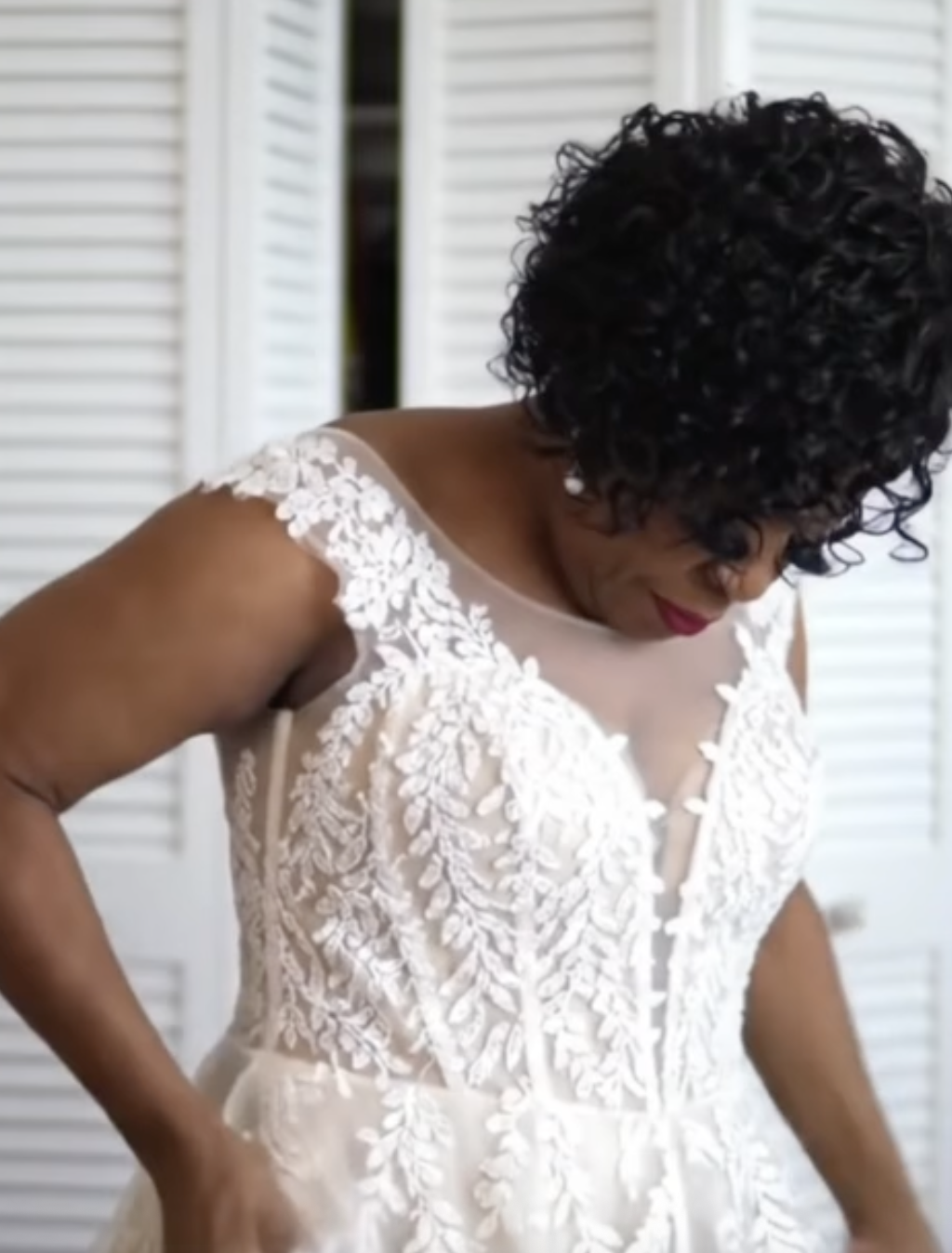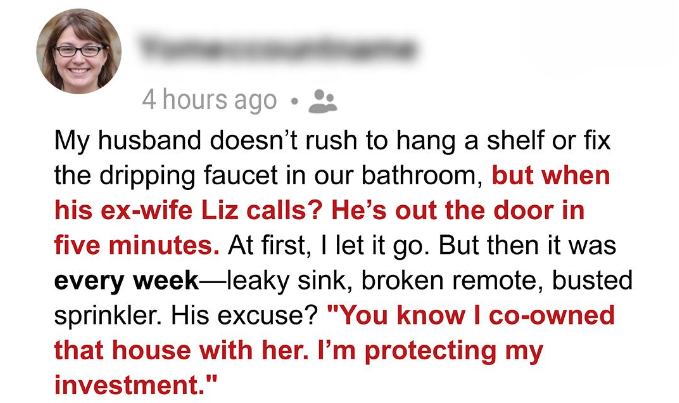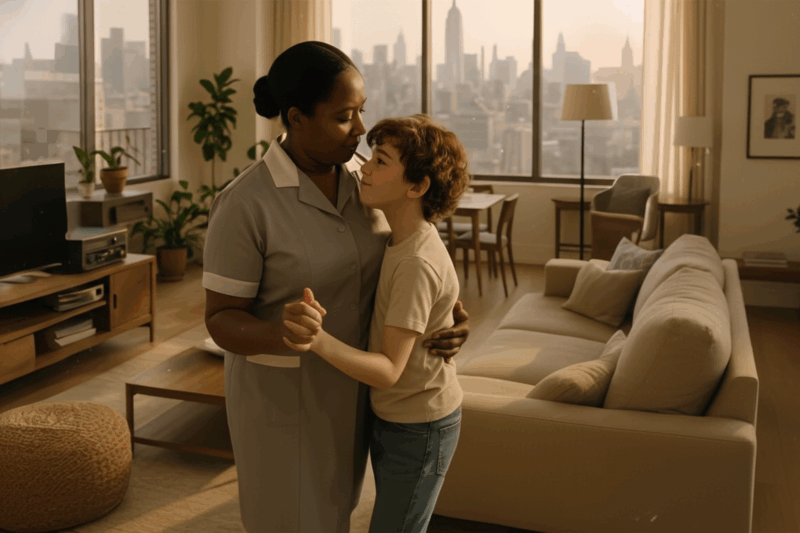Last night, my husband, Zubair, orchestrated a candlelit dinner that caught me off guard. Such romantic gestures were uncommon from him, leaving me delightfully surprised. As we relished our meal and savored the final sips of wine, I teased him, wondering if something was wrong. He fell silent, then admitted he had been unfaithful. My heart sank. He continued, disclosing that she might be expecting a child.
Before I could absorb his confession, he made a phone call and said, “Come in.” The sound of the door creaking open hit me. I turned and froze. There was my cousin, Afsana.
The room seemed to spin. Afsana? She stood there, impeccably dressed, as if attending a friendly gathering, her face showing no trace of guilt.
It had been almost a year since I last saw her. She used to visit frequently, always arriving with a sophisticated bottle of wine or artisanal cheese, like a character from a lifestyle magazine. I once admired her elegance. I even treasured her company.
I asked why she was in my home. With a casual shrug, she replied, “You always seemed so content.”
Her words cut deeper than the betrayal itself.
I turned to Zubair, my husband of eleven years, and he seemed unaffected by her remark. He rubbed his temples, as if I were the one causing trouble.
He said, “We didn’t plan for this to happen.”
Predictable.
He then explained that since Afsana might be pregnant, he wanted to be open. As if this were a business discussion, not the unraveling of my life.
I stood and told them both to leave.
Zubair pleaded, “Wait, we need to talk about what this means for all of us.”
I let out a sharp, bitter laugh. All of us? The only person who seemed to matter was clearly Afsana.
I didn’t break anything. I didn’t shout. I grabbed my keys and phone and drove to my sister’s house.
Laleh opened her door and immediately sensed my pain. She wrapped me in a warm embrace before I could speak. I collapsed in her arms and cried.
The days that followed melted into a haze.
Zubair called repeatedly. I ignored him. He texted: We can sort this out. I still care about you. It was a mistake.
But you don’t accidentally betray your spouse with her cousin. You don’t accidentally continue that betrayal for who knows how long.
Afsana sent one message: I didn’t mean to hurt you. It happened.
I blocked her without a second thought.
Laleh welcomed me to stay as long as I needed. I spent days curled up on her couch, scrolling through old photos on my phone. One picture stopped me—a snapshot of me, Zubair, and Afsana at my birthday dinner two years ago. They sat side by side, smiling. I zoomed in on his hand, resting casually on her chair.
How had I not noticed?
Betrayal, I learned, hides in small gestures.
A week later, I met with a divorce attorney. The experience felt like living someone else’s story. But I refused to stay bound to a man who could share a meal with me, pour my wine, and then invite my cousin into our home to confess their affair.
That night, I sat with my parents. Telling them the truth felt like swallowing flames.
My mother cried softly. My father sat quietly for a long time before saying, “That girl is no longer part of this family.”
Afsana’s parents, my uncle and aunt, tried to remain neutral. “It’s a complicated situation,” they said.
No, it wasn’t. It was wrong. Clear and simple.
Afsana had been living with Zubair for three weeks when he contacted me again, this time to say the pregnancy was a false alarm.
There was no child.
I stared at my phone for a long time, then threw it across the room.
Yet, somehow, that news eased a burden from my heart.
They had ruined everything for nothing.
Months later, I moved into a cozy apartment across town. I painted the walls a soothing green and filled it with unique secondhand furniture. It wasn’t lavish, but it was mine. It smelled of eucalyptus, coffee, and freedom.
I resumed work full-time. Some mornings were hard—I’d cry in the shower or leave a store when a song brought back memories. But slowly, I built a new routine.
Then, unexpectedly, I ran into Afsana at a community event.
She looked worn, her eyes hollow. She approached me, and though I wanted to walk away, I stood firm.
She shared that Zubair had left her. He’d lost his job, blamed her for his problems, and one day stopped coming home.
She was staying with a friend and looking for work. She said she missed the days we were family.
I offered no solace. I looked at her and said, “You made your choice.”
She began to cry, but my empathy had long since dried up.
Later that week, I finally responded to Zubair’s last message, which had sat unread for months: I hope you’re doing okay.
I replied: I’m more than okay. I’m truly alive.
He didn’t respond.
A year later, I started volunteering at a local shelter on weekends, something I’d always wanted to do. There, I met Navin. He had warm eyes and a gentle laugh, nothing like Zubair.
We began as friends, sharing coffee and books, chuckling over our shared relationship struggles.
Over time, our bond grew stronger.
I told him my entire story, leaving nothing out. And he stayed.
We took walks in the park every Sunday. One afternoon, he looked at me as if I were the only person in the world. For the first time in years, I felt it.
Months into our relationship, we ran into one of Zubair’s former colleagues at a café. He did a double take when he saw me with Navin.
I didn’t falter. I smiled, took Navin’s hand, and said, “Good to see you.”
That moment solidified it—I had moved on.
Not only from the marriage but from the version of myself that accepted less.
The pain didn’t fade quickly. It took therapy, countless tears, and late-night journaling. But I emerged stronger.
Afsana never offered a genuine apology.
I heard she was stuck in a job she hated, still chasing fleeting moments of validation.
Zubair moved to another city and was reportedly with someone new. I no longer cared.
Sometimes, life brings you to your knees. But that fall can spark the creation of something new.
I learned to trust my instincts—the subtle ways someone undermines you, the forced smiles, the heavy silences.
I learned to believe in myself again.
Now, as I light a candle in my green apartment, I don’t focus on what’s lost. I celebrate all I’ve gained.
If you’ve been betrayed by those you trusted most, know this: you are not broken. You are growing.
Please like and share if this story touched you. Someone out there might need to hear it today.




